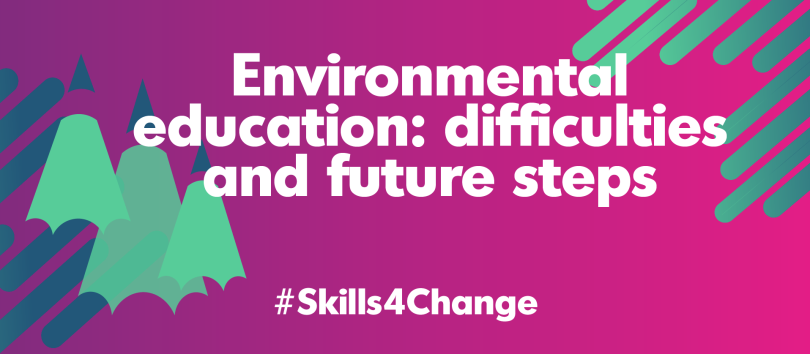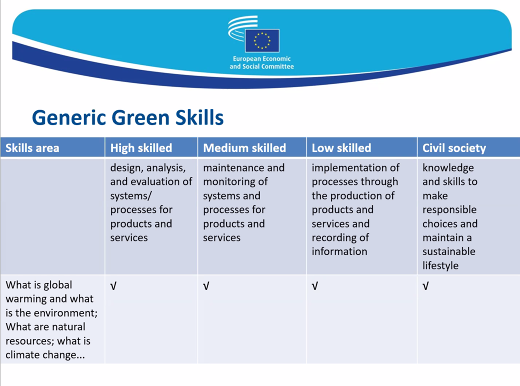
Environmental education: difficulties and future steps
Environmental education is key for societal transition towards a green lifestyle. Educational systems must provide students with green skills to face the future. But are teachers able to teach these skills? Are governments adapting curricula for the new knowledge needed?
These are the issues addressed by the “Education Trade Unions addressing Sustainable Environmental Development” kick-off conference organised by ETUCE - European Trade Union Committee for Education, which took place recently and launched a project to build a common strategy for national trade unions to support teachers in their role of green skills providers.
“This situation creates a paradox: we expect teachers to apply innovative pedagogies for sustainability education while they often do not benefit from them in their own learning. So, this means that support for teachers is crucial” said Ulrike Pisiotis, representative of the European Commission. In fact, delivering environmental education is not only a matter of knowledge, but also of skills and values to motivate students to live in a sustainable manner. Addressing green skills in the curriculum requires an interdisciplinary and cooperative approach forcing learning and teaching to go beyond classrooms. Although mandatory in curricula, environment education is not compulsory in teacher education and professional standards.
As Pisiotis explained, the plan of the European Commission is to tackle this issue starting with the centrality of the green and digital transition in the European Education Area 2025. From here, the following steps are:
- The Council Recommendation on education for environmental and sustainability expected to be ready by the end of 2021.
- The European Competence Framework in climate change
- The EU funding instruments (Erasmus +; Eu Social Funds; InvestEU; Recovery and resilience Facilities)
- Teachers’ materials (Etwinning and School Education Gateway)
Tatiana Brabauskiene representative from the Workers’ group of the European Economic and Social Committee (EESC) who attended the launch event presenting the EESC’s recent opinion “Towards an EU strategy for enhancing green skills and competences for all” recently shared her views with the ETF in an interview. She stresses the importance to consider green skills to be integrated transversally in the learning outcomes and in all forms of education and ages. It is not only a matter of awareness raising but implementation in school strategies ensuring green skills for the labour market and upskilling of the labour force.

The sharing of practices and ideas from national experiences in Europe of educational trade unions and environmental education at the launch event highlighted the need for trade unions to be more involved in governments decision-making on curricula and updating the assessment system.
Representatives of educational trade unions also agreed that stronger support for teachers is key to guarantee sustainable education. They all claim that teachers are not given the time and the resources to training and a professional development.
Moreover, environmental education is not an interdisciplinary topic and materials are not adequate for quality teaching. Trade unions can contribute to enhancing the conditions for teachers to improve, providing them materials, relevant training, but also a solid network to share best practices with centres of excellence and with universities, for example. From an institutional side, educational trade unions recognize the need of updating their internal system in order to lead on sustainable practices, and to have greater influence on decision-makers.
This kick-off conference was just the first step of a broader project that aims to equip trade unions with concrete tools to support their affiliates and, at the same time, to produce a policy resolution which will sustain environment education as part of citizenship education. If interested, follow the project here.
“Education systems need prepared teachers and a fruitful and smart institutional framework to change society”, concluded Ulrike Pisiotis requiring “joint work from social partners, institutions and teachers”.
Did you like this article? If you would like to be notified when new content like this is published, subscribe to receive our email alerts.